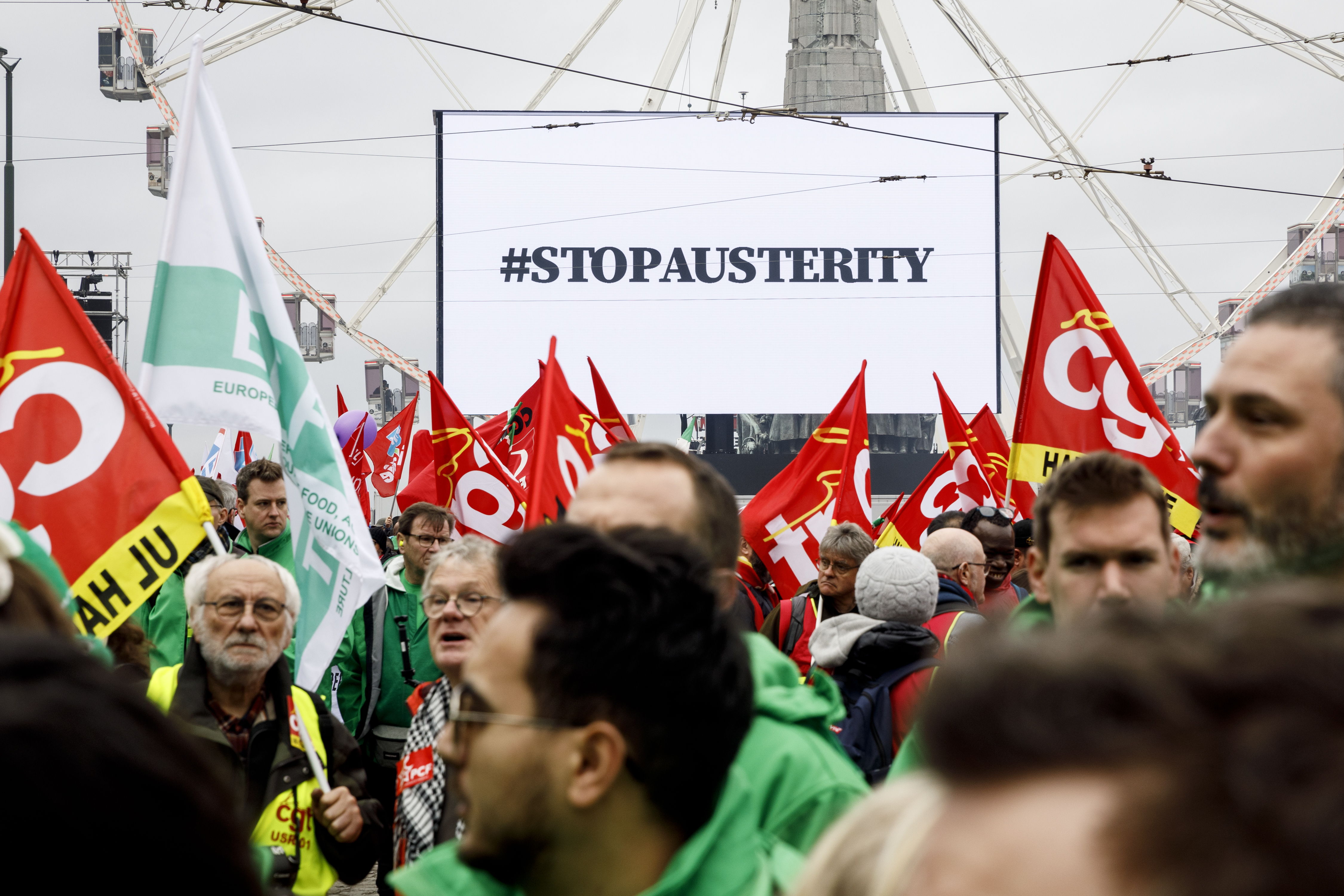Trade union protest against austerity draws thousands to Brussels

Thousands of trade unionists from several European countries took to the streets of Brussels on Tuesday morning to oppose austerity measures. Europe's finance ministers are currently discussing the revision of European budget rules.
The European Trade Union Confederation (ETUC) called on unionists to protest against the planned reform of the European Stability and Growth Pact (SGP), which sets budgetary rules.
Existing fiscal rules were suspended in 2020 to allow member states to tackle the Covid-19 pandemic and purchasing power independently. A new pact is due to come into force in 2024 and unions fear harsh austerity measures.
European solidarity mechanism
The demonstrators gathered at Place Poelaert at 11.00 before marching from the inner ring road to Place Jean Rey. The crowd waved flags and banners of Belgian, French, Italian and Lithuanian trade unions.
The unionists called for a European solidarity mechanism, similar to the one used during the Covid-19 pandemic, which would release funds to safeguard workers' jobs and incomes.
"Today we say no to the European desire to return to austerity and we shout yes to a social Europe," said Esther Lynch of the ETUC. "Instead, workers need public investment for a fair ecological transition, better education, efficient healthcare and higher wages."
Room for reform and investment
The SGP reform has been under discussion for months. The European Parliament's Economic Affairs Committee adopted its position on the revision of the European budget rules on Monday evening.
MEPs want member states with high debt ratios to reduce it at a fixed rate. Contrary to the European Commission's proposal, both the Council and the Parliament want countries with debts of more than 60 per cent of their GDP to reduce them gradually.
The revision of the European fiscal rules should give EU countries a more tailored path for the evolution of their net primary expenditure. The reference values of a maximum debt ratio of 60 per cent and a maximum deficit of 3 per cent will not be touched, but there will still be a need to work towards these thresholds.
The aim is to give member states room for reform and investment, but what expenditure, if any, can be excluded from the calculations is still under discussion. All-night talks between Europe's finance ministers last week failed to produce a Council agreement on the reform. A deal may emerge in the week of 18 December.
© BELGA PHOTO HATIM KAGHAT